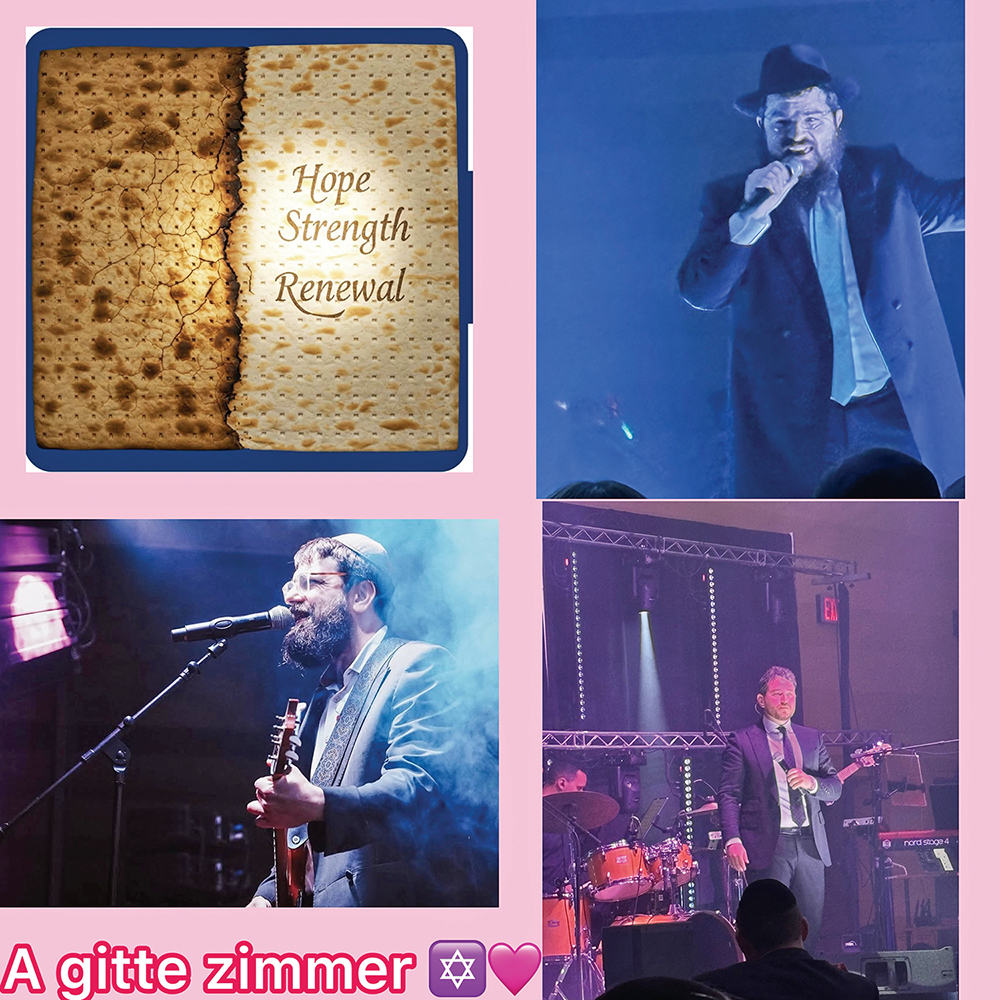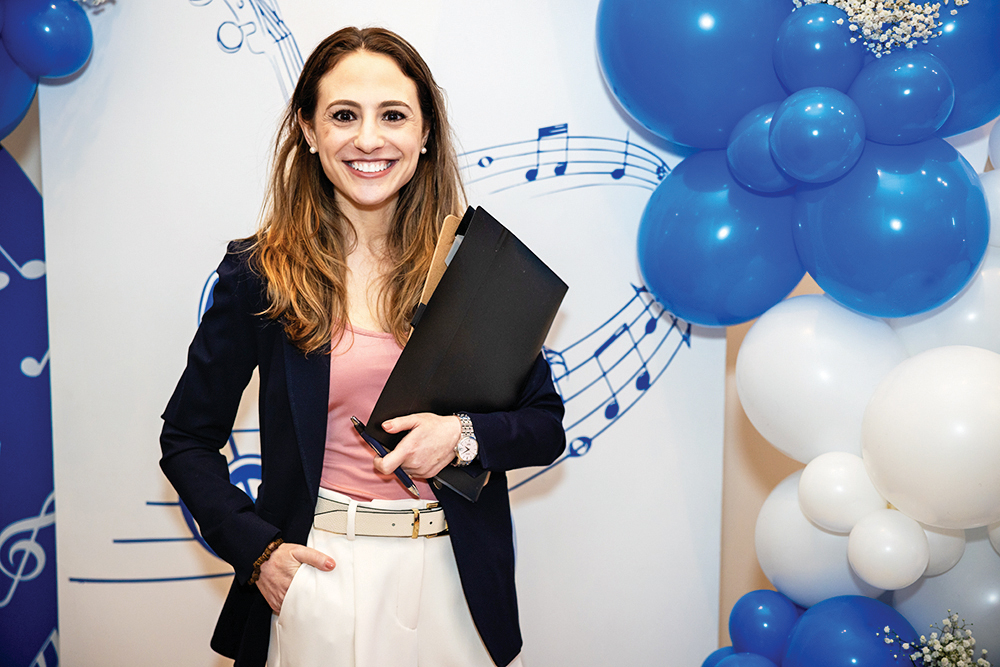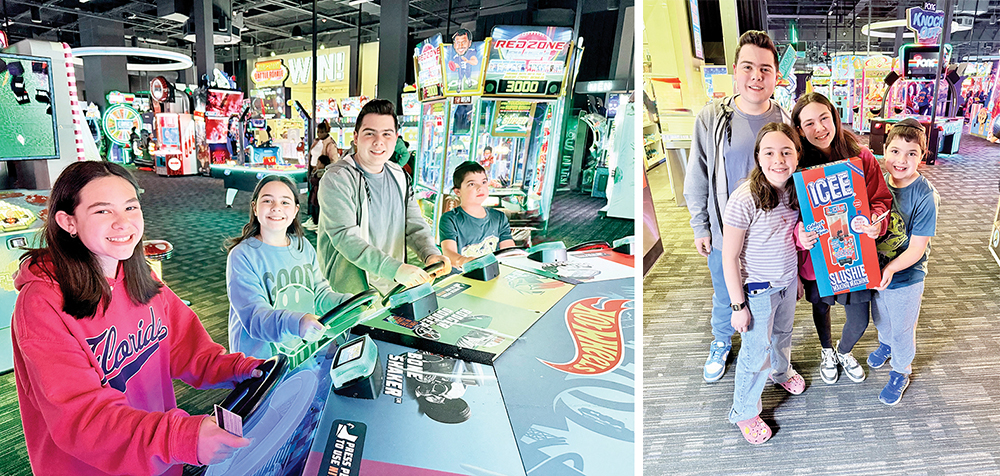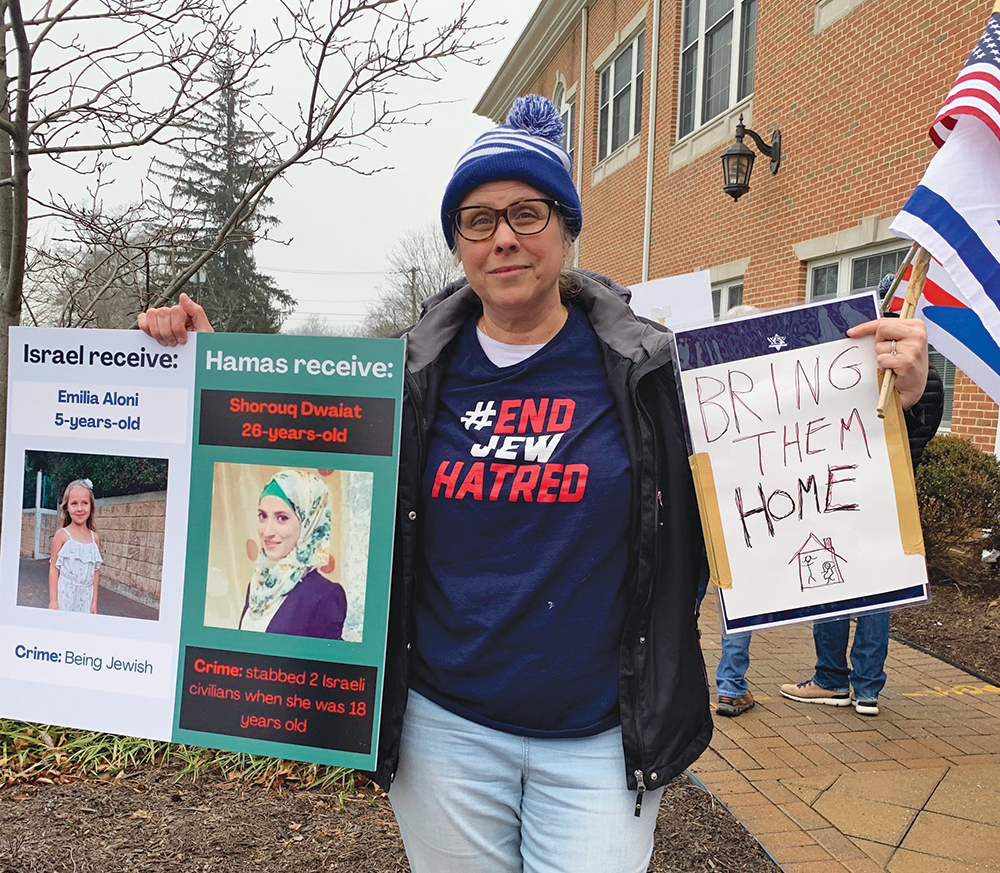
Dozens of Jews from across the denominational spectrum gathered outside the Livingston Town Hall on erev Shabbat, Jan. 26, to show their support of Israel and call for the release of the hostages being held in Gaza. It was held about an hour before a “ceasefire now” rally was held by Palestinian supporters in the same location.
Many of the attendees waved Israeli flags or carried posters with pictures of the hostages. Others wore pieces of tape on their jackets with the number 111 written on it, to show how many days the hostages have already endured.
“We all need to bring them home, so demonstrations like this are important to show solidarity, support and unity,” said Joshua Commer, one of the event organizers. He added those in attendance were “demonstrating that in Livingston hate has no home.”
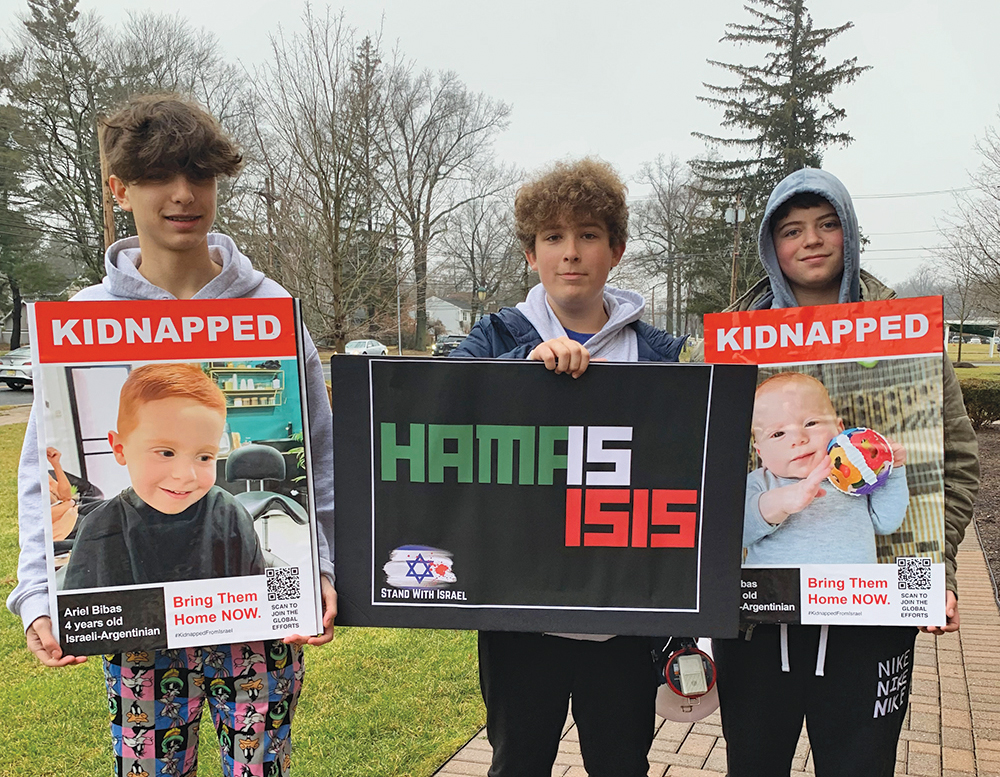
Fellow organizer Suzy Lugashi said that while some call for a ceasefire, that can only happen after the 136 hostages being held are released. “That’s first,” she said.
In the center of the gathering organizers set up a Shabbat table. Each chair was adorned with a picture of a hostage and a red balloon. At the end of the table sat an empty highchair with toys and a sippy cup. Taped onto the front of the chair was a photo of baby Kfir Bibas, who turned 1 earlier in January and remains captive in Gaza along with his 4-year-old brother Ariel and their parents Shiri and Yarden.
“The world has forgotten us, they don’t care,” said Cara Altman, one of the attendees. She said those calling for a ceasefire are “misguided,” because it is the Palestinians who have rejected “everything.” She continued, “If they really cared they would say ‘free both of us from Hamas.’”
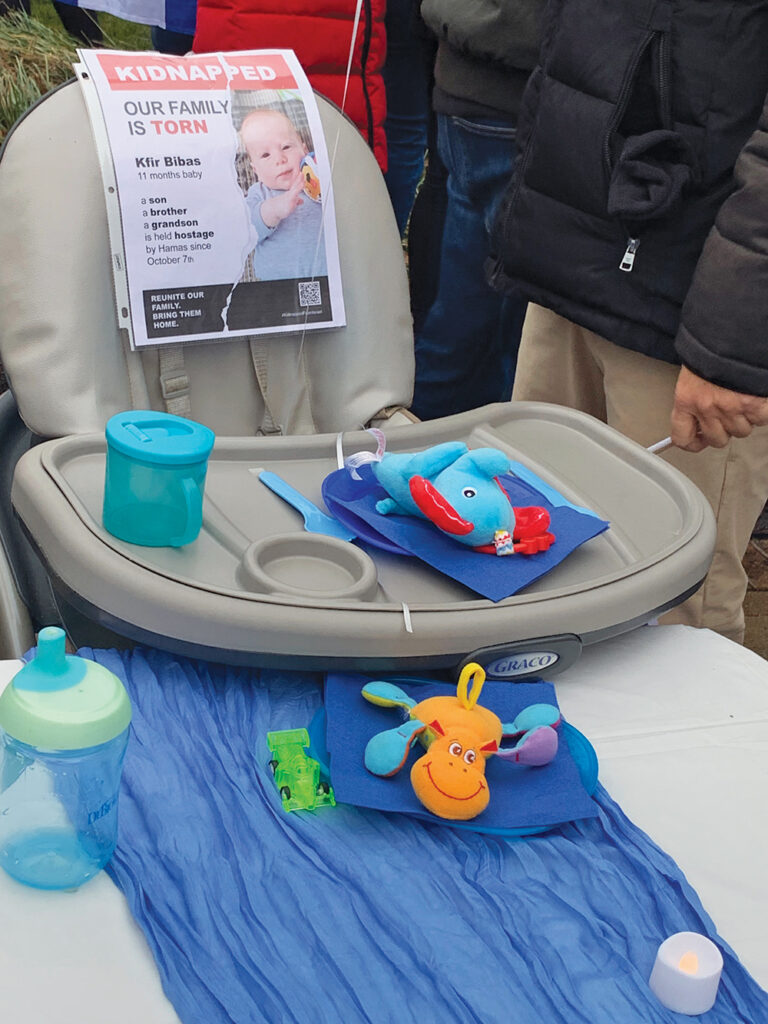
Rabbi David Vaisberg of Temple B’nai Abraham in Livingston addressed the crowd and spoke about the Rambam, who stressed that redeeming captives takes precedence over all other mitzvot, even feeding the hungry or visiting the sick, because hostages face all of these conditions. “And yet,” he said, “we have that conundrum that Rambam points out, that we cannot create a circumstance wherein getting these hostages home we are giving incentive to Hamas to do it again.
“Which means we are also driven to make this as painful for Hamas as possible. We are forced into positions in which we do not want to be because this should not have happened. Because we have our brethren in captivity who are unaccounted for and are not being treated in a humane manner and people are still at risk.
“We do not rest until our hostages are home, until our family is home. We do not rest until
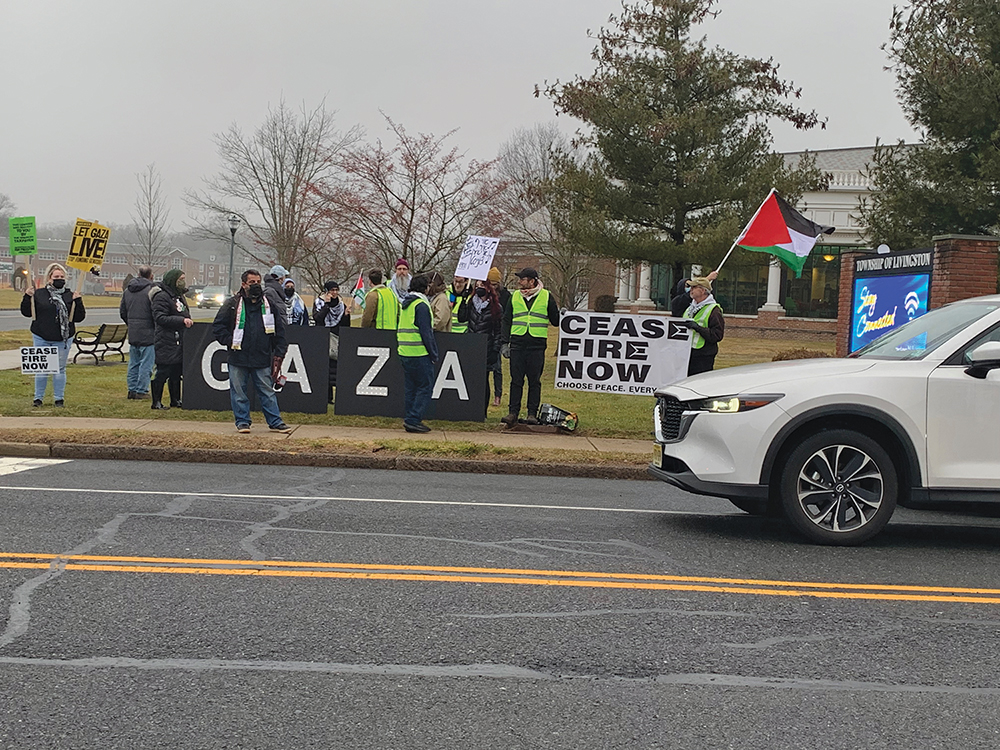
Hamas knows they may never do this again,” he continued.
Also speaking at the event was Rabbi Simeon Cohen of Temple Beth Shalom in Livingston, who said that when the Jews left Egypt they weren’t used to freedom because they had for years accepted their “normal” life as slaves. He said he worried that “today, in 2024, Jews all over the world are beginning to accept our new normal, our new state of living in a post-Oct. 7 reality,” where rockets are normal and displaced families make homes in hotels.
During the event, the names of the hostages were read out loud and prayers were said for the Israel Defense Forces and the captives. In addition, the group sang “Hatikvah” and “The Star-Spangled Banner.”
Some of the men and teenage boys in attendance used the opportunity to put on Tefillin and say Shema. One of the teens even put on Tefillin for the first time, saying that it put him in the Israel mindset.
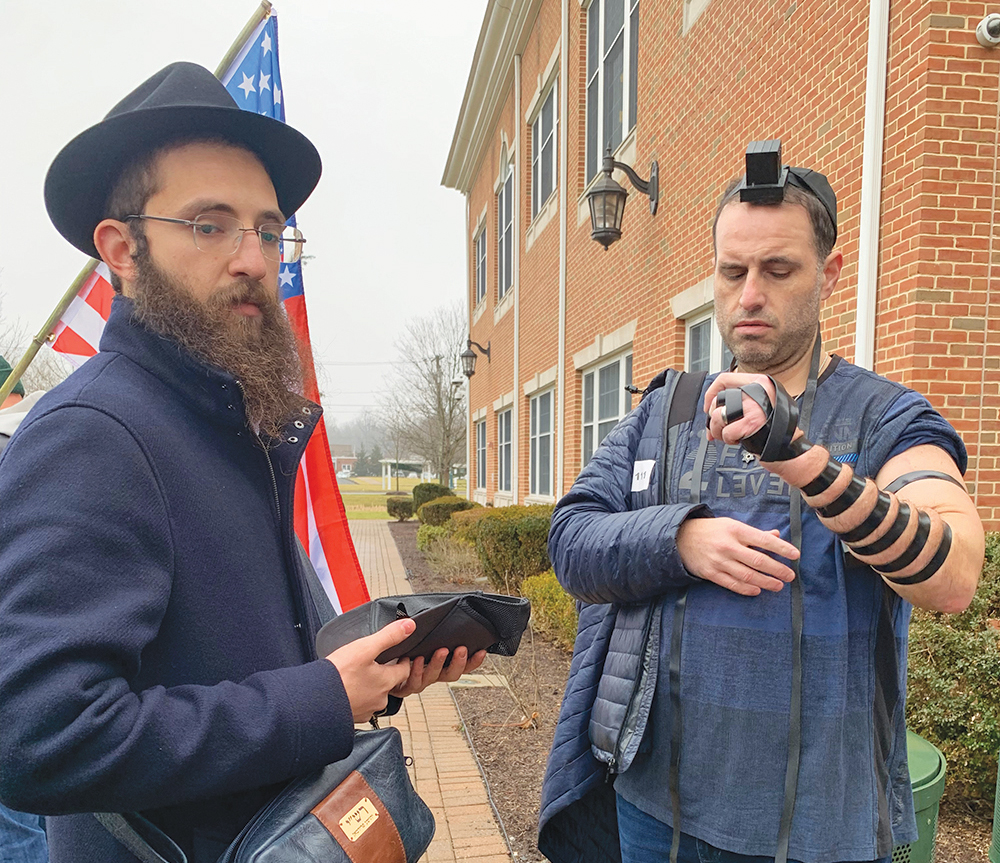
The pro-Israel rally, which went on for about an hour, preceded another rally at the same locale by pro-Palestinian supporters carrying signs reading “Ceasefire Now” and “Let Gaza Live.”
As the Palestinian supporters began arriving for their event—the two groups were kept on different sides of the street by the Livingston Police Department—many of the Israel supporters broke out into song, singing “Am Yisrael Chai” and “Oseh Shalom.”
Faygie Holt is the author of the bestselling Jewish children’s book series, The Achdus Club, for girls ages 8-11. The books, “The New Girl” and “Trouble Ahead,” are available at Jewish bookstores across the country and online at menuchapublishers.com. An award-winning journalist and editor, Faygie’s work appears regularly on chabad.org and in The Jewish Link, among other outlets. Learn more about the author, her books and her writing at faygielevy.com.


